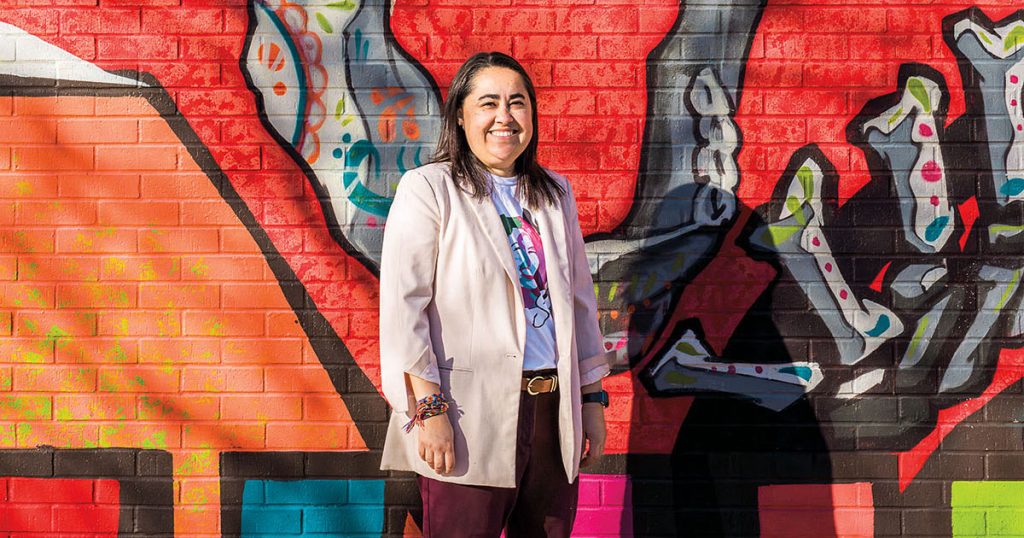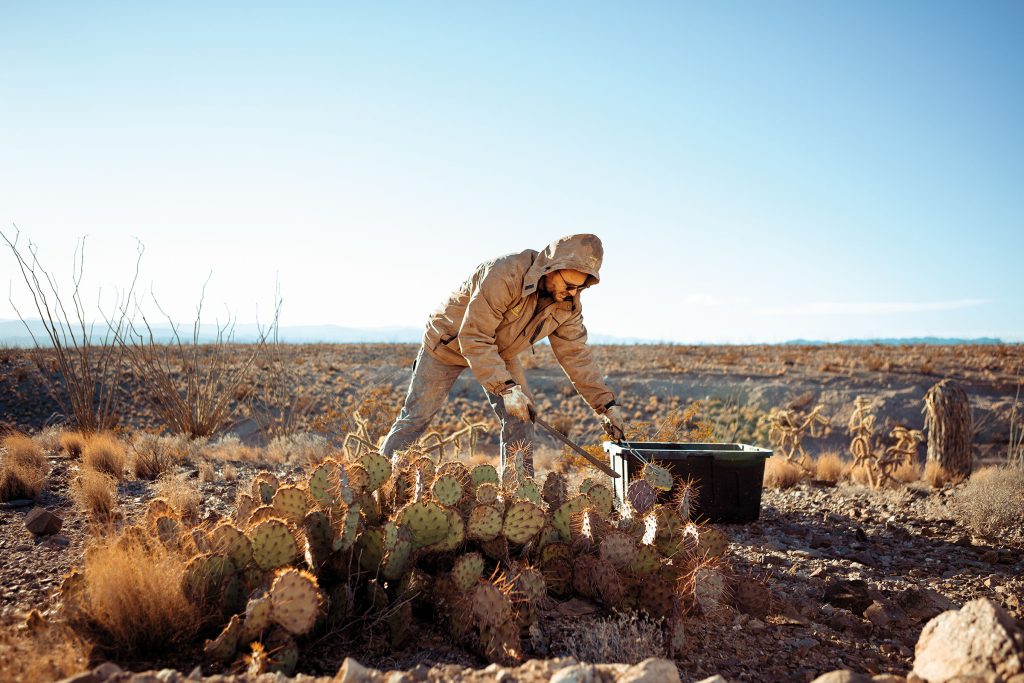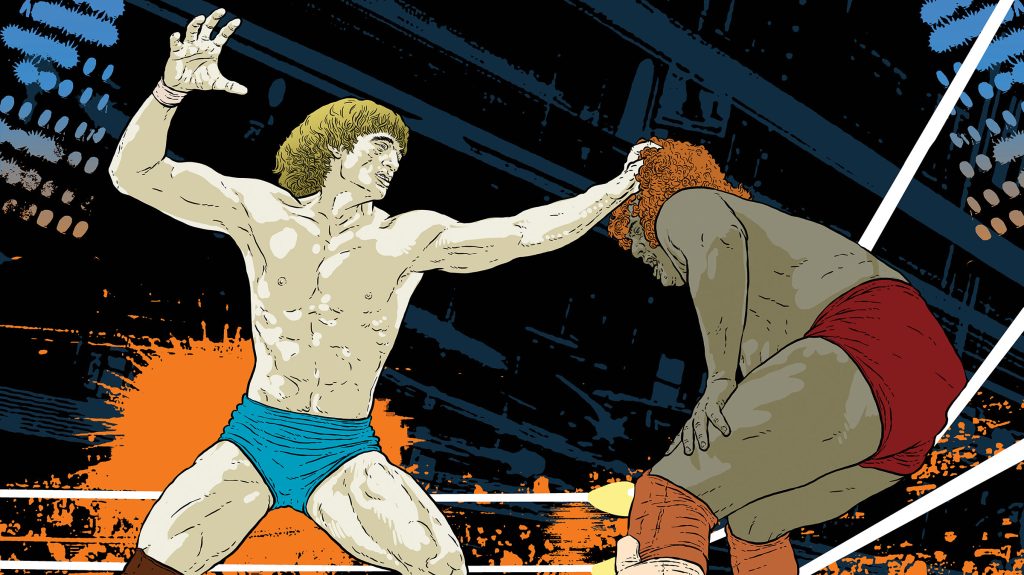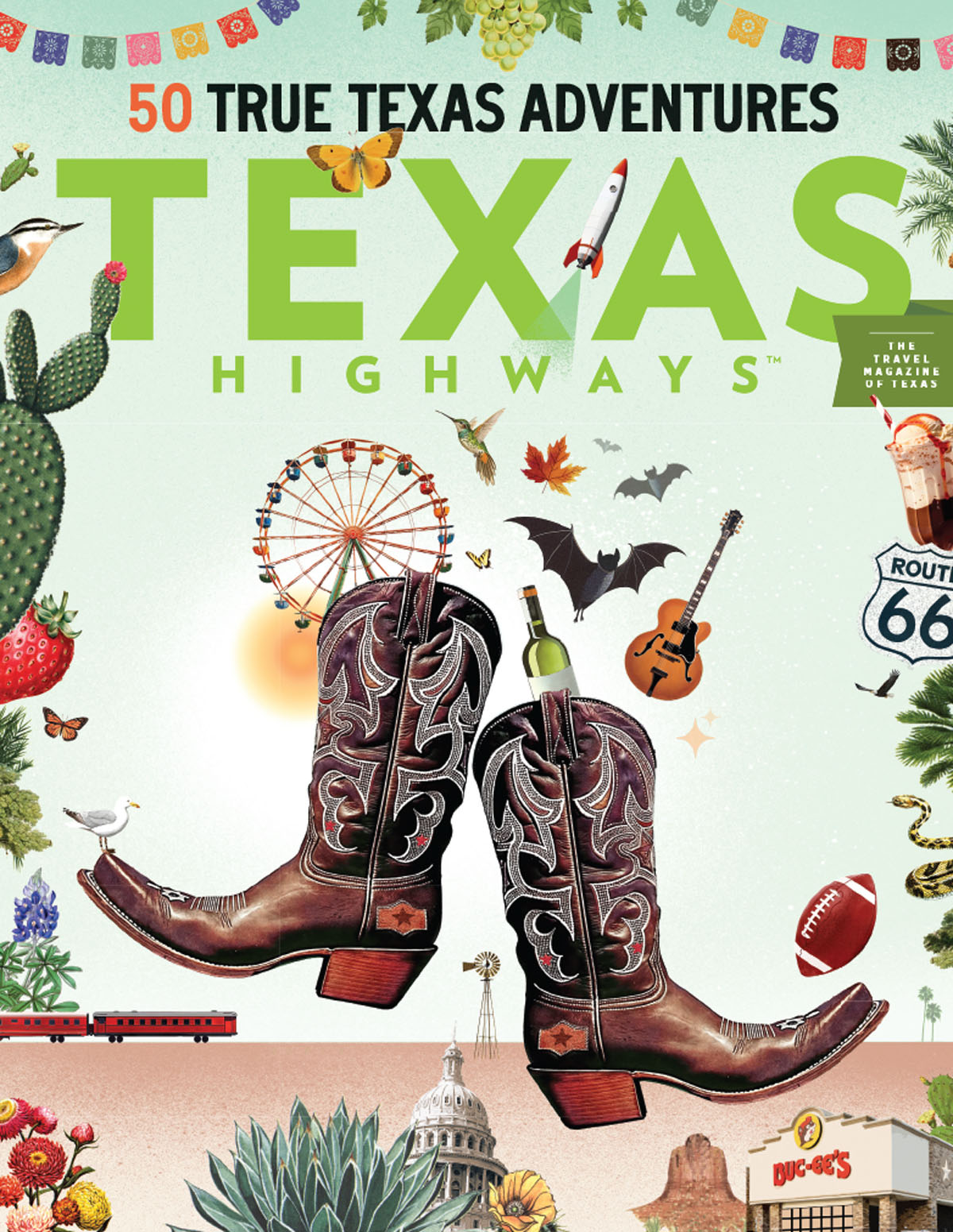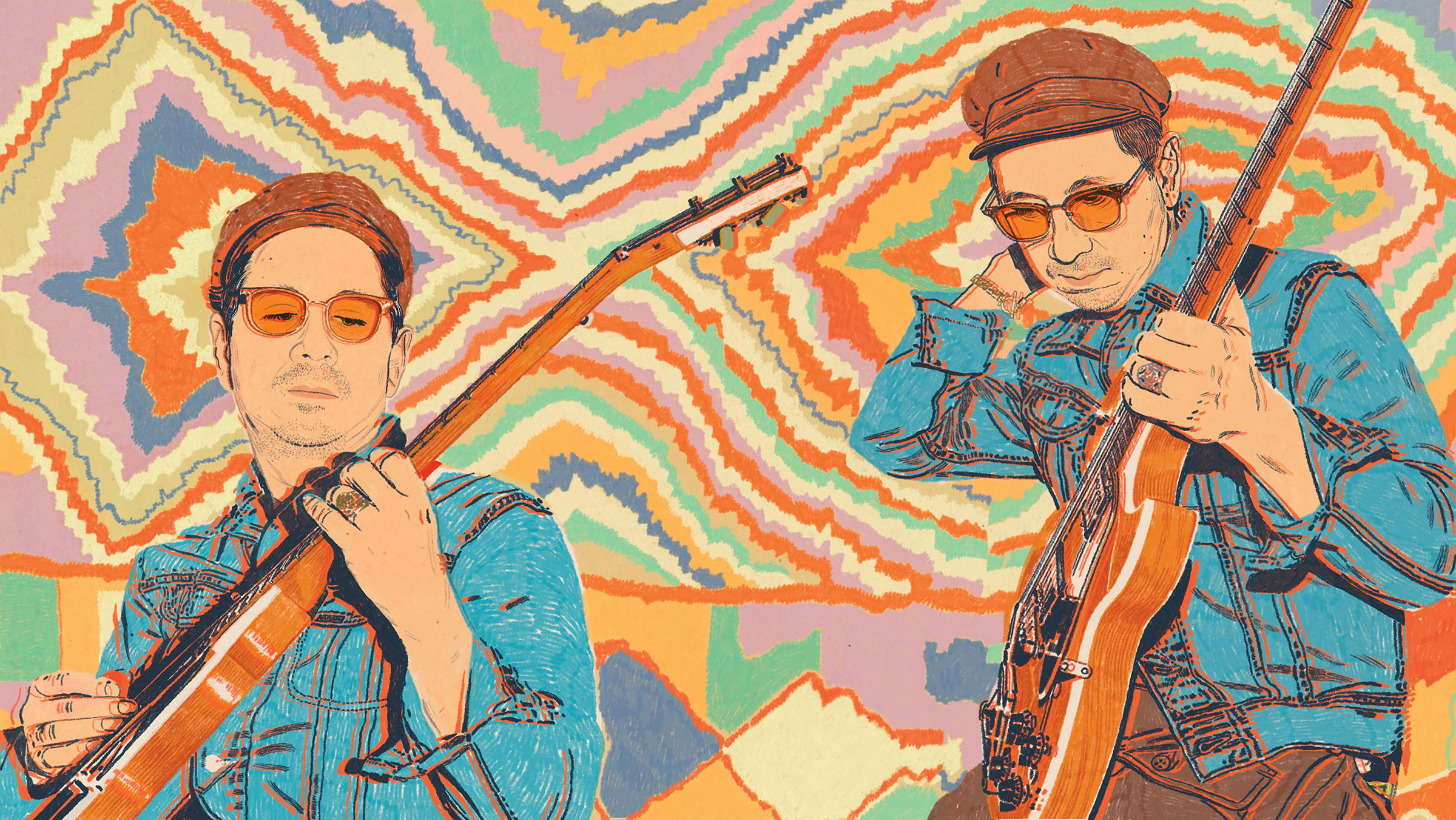
Illustration by Anna Higgie
It is entirely possible Adrian Quesada is the most talented and inspired musician, producer, and songwriter Austin has seen in 20 years. Maybe since Stevie Ray Vaughan.
Let’s run the numbers: Since 1997, the 46-year-old Laredo native has been a participant, on some level, in 51 recordings. It all started with his avant-garde jazz act the Blue Noise Band, which fused with fellow travelers the Blimp in 2000 to form the brilliant, Grammy-winning Grupo Fantasma. This Latin funk crew became known nationally for occasionally playing live shows with Prince.
He did time with Grupo spinoffs Brownout and Money Chicha, the pan-Latin outfit Ocote Soul Sounds, the indie rock trio Spanish Gold, the psych act Echocentrics, and the trippy duo the Electric Peanut Butter Company. But wait, there’s more. Quesada released not one, but two solo albums in 2022: the ballads record Boleros Psicodélicos and the cinematic Jaguar Sound.
We’re not even to the best part—Black Pumas, Quesada’s pop soul team-up with singer and guitarist Eric Burton. The band’s 2019 self-titled debut album generated the hit single “Colors.” A deluxe version of the album, with live cuts and covers that double the number of tracks, was released in 2020. It was a perfect pandemic listen that generated three nominations at the 2021 Grammys to add to the one from the year prior for Best New Artist. Black Pumas went on to play a virtual set for President Biden’s inauguration; their live studio album, Capitol Cuts (Live From Capitol Studio A), picked up two more Grammy nominations; and they were named Duo/Group of the Year at the 2021 Americana Honors and Awards. “I always have a million concepts and 10 things on the back burner,” Quesada says.
At the moment, the front burners are occupied with solo work and wrapping up a new Black Pumas album.
TH: Talk to me about growing up in Laredo.
AQ: It’s a border town that is three-and-a-half hours from Austin, more than two hours away from San Antonio, which is the closest big city. But being from there is not quite like being from the Rio Grande Valley either. It’s similar to places like McAllen and Brownsville, but those cities are more connected, and Laredo is just kind of isolated down there. So, it has its own culture.
TH: Did you go back and forth a lot as a kid?
AQ: Yeah, half of my family is in Mexico, half in the States. But it’s different now. Back then, crossing the border was like driving from South Austin to North Austin. No passport. It took literally 10 minutes to get to my grandmother’s house in Mexico. Maybe I was too young to process it, but the border seemed much more fluid then. It seems like such an intense place now.
TH: Was there a music scene?
AQ: No, there were a couple of bands but not like a real scene of any kind. I started as a visual artist, just drawing all the time. MTV was really my escape. I think that was what probably opened the door for me wanting to play music. I just became obsessed. Every one of those shows, from Yo! MTV Raps to 120 Minutes to Headbangers Ball, influenced me.
TH: You’ve been in all sorts of bands that played everything from jazz to funk to Latin music to psychedelic rock.
AQ: I can go back and forth between doing music in Spanish or English. I can move between doing different rhythms or different styles of music. In Laredo, almost everybody’s bilingual, and people carry on full conversations in English versus Spanish. You can walk in a restaurant and speak English, and they’ll speak Spanish. People just carry on like that, and I didn’t think it was unusual until I moved to Austin. That was a huge influence. I realize now growing up down there you are just always between two cultures, two languages, two everything. It wasn’t until I moved to Austin and started meeting other people that I realized what a unique situation it is to be born and raised in a border town.
TH: When did you start playing music?
AQ: I picked up the guitar at 13 and started taking classical and flamenco lessons. That was just what the teacher taught down there. And I did it for a few years. But then in high school, my friends were playing loud through amps and that looked like a lot more fun. I’m thankful that I learned a little bit of discipline early on, but it was all out the window when my friends were playing in garages. I was like, “Oh, this is way cooler.”
TH: You always seem to have a bunch of projects going. Is that still true?
AQ: No, I was touring so much with Black Pumas it didn’t seem fair to just come in and out of all these other bands. I have my solo work and my work with Black Pumas. The sound of Black Pumas is me and Eric Burton. It’s all kinds of soul, rock ’n’ roll, psychedelic sounds—but it’s very specific in that it’s both of our inputs. Eric’s singing and songwriting is obviously a big part of that. He has such a strong presence.
TH: Did you have a sense the project was going to be this big?
AQ: When we first started, we didn’t have the intention of being a band. We were just recording a fun thing. But day one in the studio in 2017 with Eric, I remember thinking, “Oh, this is incredible.” We just kept recording. I didn’t want to get too excited, and that was coming out of a period where I was in like four or five bands, and I didn’t want to be in another band at the time.
TH: Why?
AQ: It started to seem like a lot of people thought it was some sort of gimmick.
TH: What made you change your mind?
AQ: At last, I’m like, “I’m really happy in the studio and recording and releasing music. I don’t wanna start a band.” Eric and I kept recording over the summer and all of a sudden, we had a big batch of songs. And we decided to play a couple of shows. By the second or third show, I thought it had the potential to be big. I remember taking Eric out to lunch since we both had to get each other’s temperature.
TH: When you are home in Austin, what are your days like?
AQ: I try to operate like a regular nine-to-five dad person. Walk the dog, get some exercise, come in the studio. I come in here every day, and if we’re not active in the main studio on a specific project, I’ll use this room to sketch and write. My schedule in general is so erratic, all of a sudden I’ll have to leave for a week or two weeks or three days. So, I try to keep it normal here. But once I am working on an album, that’s when we get into the long, long hours.
TH: You’ve been DJing, too. Where do you shop for records in Austin?
AQ: For older stuff—soul, jazz, and funk specialists—usually Breakaway. Newer stuff at End of an Ear—an avant-garde stronghold—and Austin’s world-famous Waterloo.
TH: Can I hear some new Pumas stuff?
AQ: No, no, no. I’m not doing that yet. No. I would get shot by a lot of people.
Stay tuned to new music from Adrian Quesada and upcoming concerts at adrianquesada.net.
